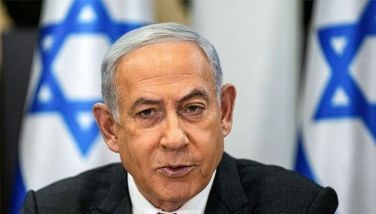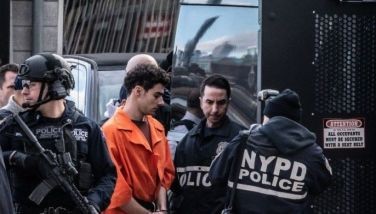Divided Thailand readies for advance voting Sunday
BANGKOK — A tense Thailand prepared for Sunday's round of advance voting as the main Feb. 2 elections still hung in the balance. The ruling party indicated it wants the vote to go ahead but was willing to delay it if political rivals end months of protests and agree to recognize the legitimacy of a new vote.
Yingluck Shinawatra's government is under extreme pressure from the protesters who have occupied key intersections in Bangkok and tried to shut down government offices and prevent civil servants from working. They have vowed to disrupt the elections, want Yingluck to resign and an appointed interim government to implement anti-corruption reforms before a new vote can take place.
On Friday, the Constitutional Court ruled that the government, in agreement with the Election Commission, could postpone the polls. But Yingluck's Pheu Thai party questioned the legal basis for the ruling.
One official, Thanin Boonsuwan, suggested that the court's ruling did not meet conditions set down by law or precedent. He said that the court decision was merely an opinion and did not mandate a postponement.
The debate over postponing the election came as polling stations across the country were preparing for advance voting on Sunday despite threats from protesters to block it.
Suphot Thariwiboon, an election worker in Bangkok, said there were concerns that protesters will occupy the polling stations, or block access for voters.
The outcome of Sunday's advance voting is seen as a harbinger for the main vote. Some 49 million of the country's 64 million people are eligible to vote, and 2.16 million of them have applied for advance voting. In the country's last general election in 2011, 35 million of 47 million registered voters cast their ballots.
Pheu Thai officials hinted the government would consider a postponement of the Feb. 2 vote if the opposition Democrat Party, which plans to boycott the polls, agrees to take part, and if anti-government demonstrators cease their protests.
Neither the Democrats nor the protesters have agreed to those conditions.
"This isn't about compromise," protest leader Suthep Thaugsuban said. "The people (protesting) will never go home because what the people want is political and national reform."
Yingluck and the Election Commission are set to meet on Tuesday to discuss the election plans.
Commissioner Theerawat Theerarojwit said the election body believes the vote should be postponed so that the contending sides can first talk with each other.
"As for the February 2 election, I don't believe it can be held," he told reporters. "It won't be able to be held because if there are elections on that day people could get hurt, and the (Elections Commission) doesn't want people to get hurt."
Even if the polls go ahead, it is possible that protesters' efforts to block candidates and voters may result in some legislative seats not being filled, denying Parliament a quorum and keeping it from convening, which would prevent a new government from being formed.
Postponing the election could provide a solution to the current crisis, said Bangkok-based political analyst Chris Baker. But he said that unless the Democrat Party — which is closely allied with the protest movement — takes part in an election at some point, "it's still useless."
Democrat Party spokesman Chavanond Intarakomalyasut on Friday applauded the court's ruling and urged the government to postpone the polls. He said his party would only participate if it feels the elections were being held under trustworthy conditions acceptable to all.
Volunteers and election workers turned up yesterday to get instructions and training at stations that in some parts of the country are likely to see confrontation when the polls open. Problems are most likely in Bangkok where there are 50 venues, and in Thailand's south, a stronghold of the opposition.
Australia's Department of Foreign Affairs and Trade advised its citizens to exercise a high degree of caution because protests at polling stations are likely to result in violence in some locations.
The government this week imposed a state of emergency in Bangkok and surrounding areas after a spate of protest-related violence. The measure allows suspension of many civil liberties. The protesters say they will ignore any measures imposed by the decree, which is valid for 60 days.
The protesters say Yingluck's government is carrying on the practices of Thaksin Shinawatra, her billionaire brother who was prime minister from 2001 to 2006, by using the family fortune and state funds to influence voters and cement its power.
Thaksin was ousted in a military coup in 2006 after street protests accusing him of corruption and abuse of power. The coup triggered a sometimes-violent and still active struggle for power between Thaksin's supporters and opponents. He fled into exile in 2008 to avoid a two-year prison sentence for a conflict of interest.
- Latest
- Trending






























